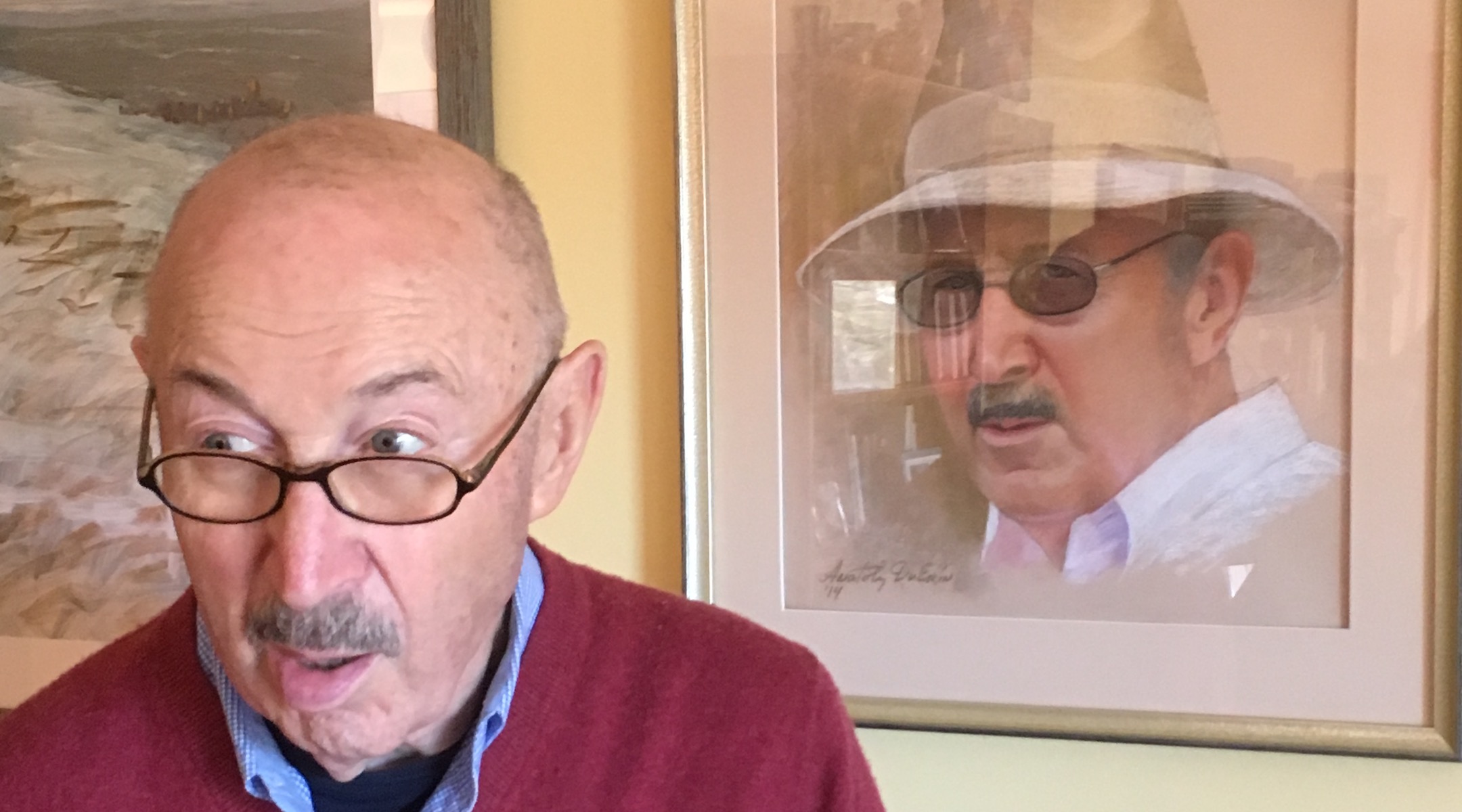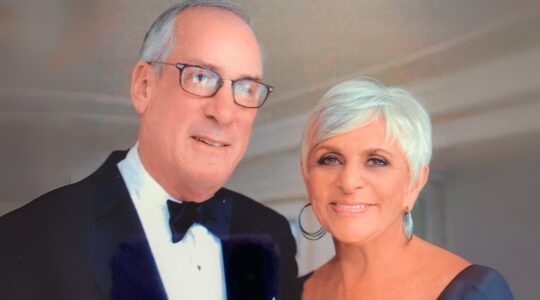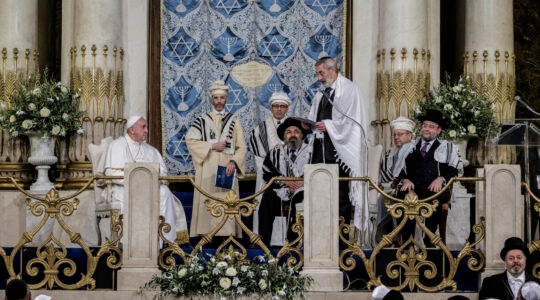This article is also available as a weekly newsletter, “Life Stories,” where we remember those who made an outsize impact in the Jewish world — or just left their community a better or more interesting place. Subscribe here to get “Life Stories” in your inbox every Tuesday.
David Shrayer-Petrov, 88, refusenik who found literary freedom in America
In the wake of the Six-Day War in 1967, the Soviet Union had become increasingly antisemitic, intolerable circumstances that eventually pushed David Shrayer-Petrov, his wife, Emilia Shrayer and their son, Maxim D. Shrayer, to apply in 1979 for exit visas.
The consequences of their bold decision were immediate: Shrayer-Petrov was stripped of his academic medical position and was tossed out of the Union of Soviet Writers. For the next eight years, until they were granted permission to emigrate to the United States, they faced pernicious antisemitic harassment.
In 1987, the family settled in Providence, where Shrayer-Petrov worked as a medical researcher at Brown University. He continued his parallel path as a writer, including the 2014 publication of “Dinner With Stalin and Other Stories.” But it wasn’t until 2018 that he saw the publication of “Doctor Levitin,” the English-language translation of the groundbreaking novel that he had penned in Moscow, in Russian, some 40 years earlier. “Doctor Levitin” chronicled the struggles of refuseniks and explored the contradictions of mixed, Jewish and Slavic marriages.
He and Emilia, his wife of 62 years, relocated to Boston to be close to their son, Maxim, an award-winning writer (“Leaving Russia”), and his family.
Shrayer-Petrov died on June 9, at age 88. – Penny Schwartz
Howard Fineman, 75, tireless journalist and son of Jewish Pittsburgh
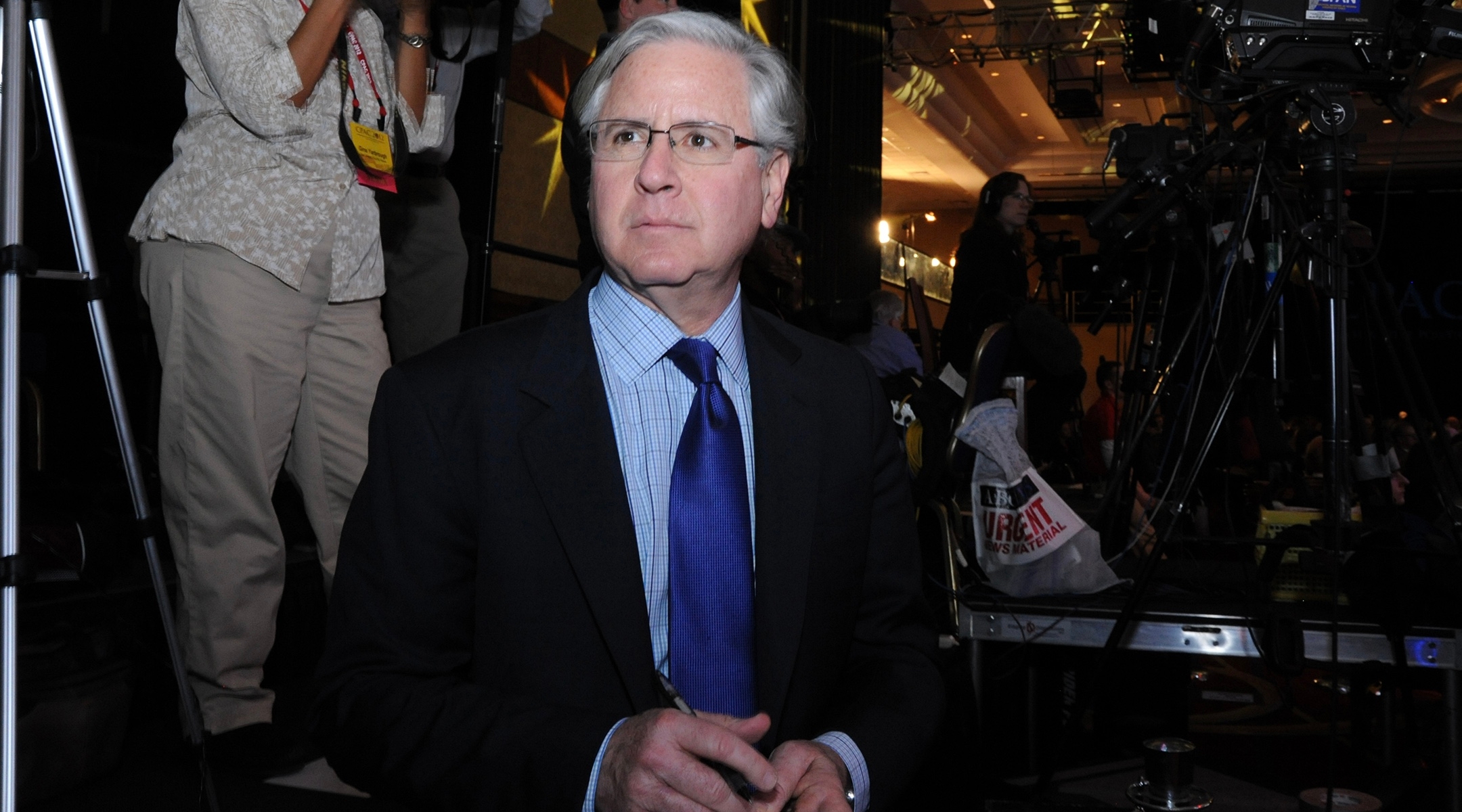
Fineman on the campaign trail at the CPAC Conference, February 2012. (Jeff Bedford/Wikipedia)
Journalist Howard Fineman, “a ubiquitous presence on MSNBC and a prolific writer for Newsweek magazine during its golden age,” died June 11 at 75 after a two-year-long fight with pancreatic cancer.
Fineman, whose Jewish ancestors fled Ukraine and who grew up at Pittsburgh’s Tree of Life synagogue, wrote about the mass shooting there in 2018. “Even as I begin to doubt that my Pittsburgh was the Promised Land, I remain guided and inspired by it,” he wrote. “My late parents, Morton and Jean Fineman, were teachers who loved America even as they fretted about its shortcomings. They always reminded me that, in a democracy — and only in a democracy — people get the government they deserve, and that each new generation must work hard to win anew the rights and blessings that we take for granted.”
Tziporah Feiga Alter, 97, rebbetzin who helped her husband expand the Ger Hasidic movement
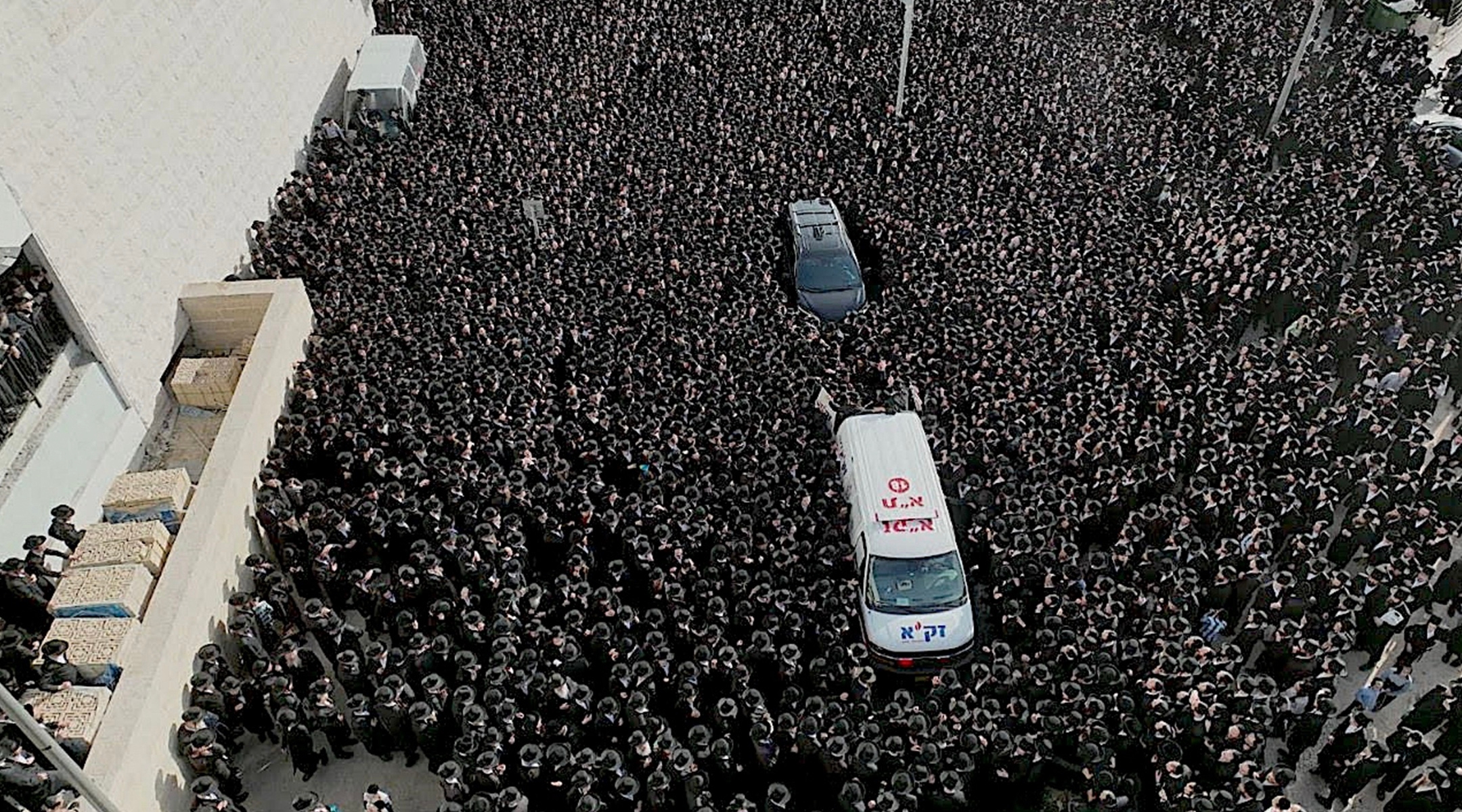
Thousands attend the funeral of Rebbetzin Tzipora Feiga Alter, widow of a Ger Hasidic leader, in Jerusalem, June 16, 2024. (Via YouTube)
Tziporah Feiga Alter, a descendant of Hasidic nobility and the widow of the former grand rebbe of the Ger Hasidic movement, died Sunday in Bnei Brak, Israel. She was 97.
Her wedding in 1946 to Pinchas Menachem Alter was considered “a historic and joyous event for the Gerrer community and beyond, bringing hope and happiness to survivors in DP camps and the small Hasidic communities in Eretz Yisrael,” wrote the Haredi newspaper Hamodia. An important influence in her own right, she and her husband (he died in 1996 at age 69) helped ignite an era of explosive growth for Hasidic Jews following the losses of the Holocaust.
Andrea Termotto, 35, rabbi’s wife who died after giving birth to twins
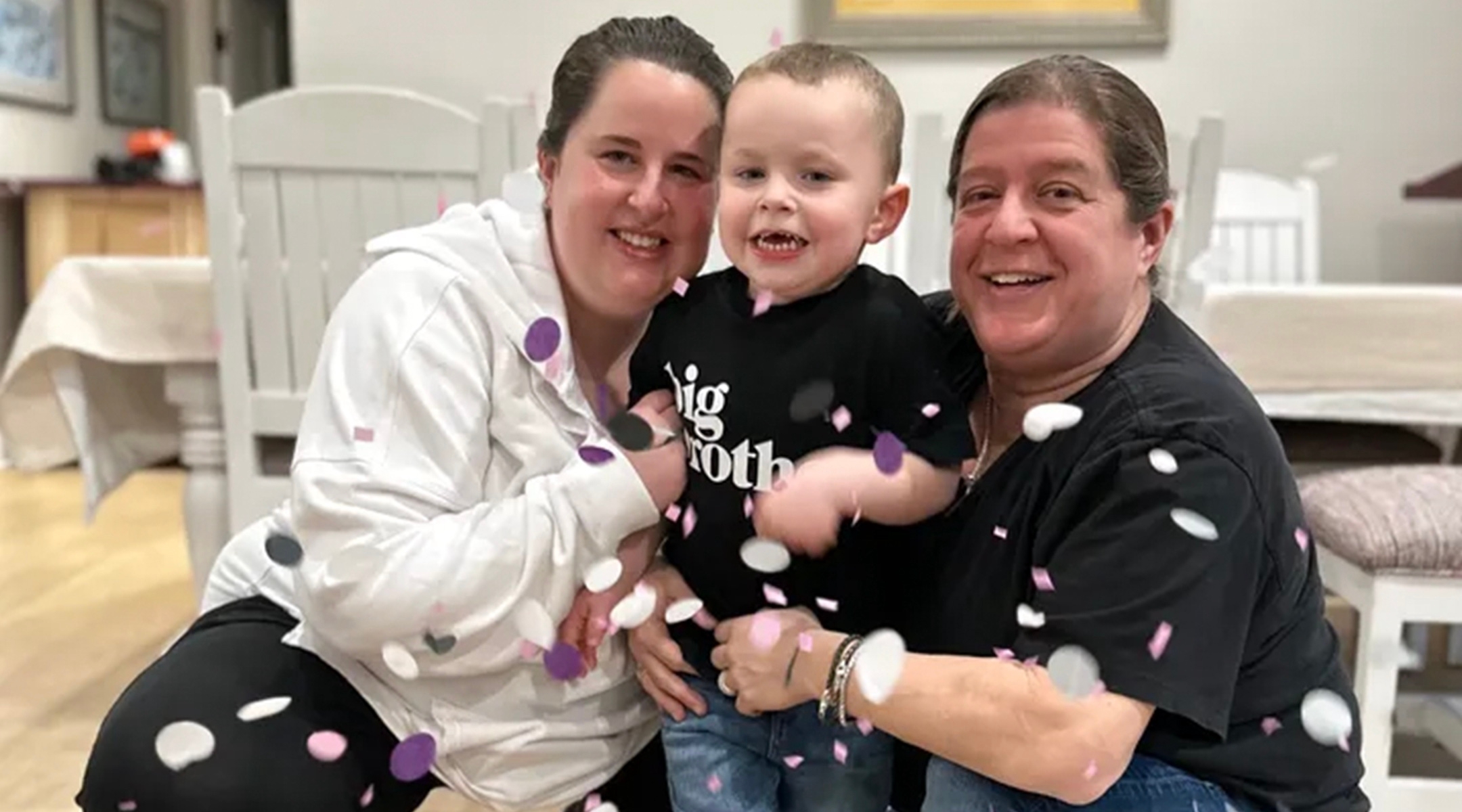
Andrea Termotto, above left, and Rabbi Jenn Weinstein with their son, Ellis. (Deborah Richler via GoFundMe)
In the Long Island newspaper Newsday, Andrea Termotto was described as someone for whom “l’chaim” was a “mantra and a motto.” She brought that spirit to her work as a dietitian at Northport VA Medical Center, as the wife of Rabbi Jenn Weinstein of Congregation Simchat HaLev in Woodbury, New York, and as a mother of the couple’s 3-year-old son, Ellis.
On Saturday, June 2, the unthinkable happened: Termotto, 35, died giving birth to their twins Goldie and Hazel; physicians discovered she had a rare and often fatal amniotic fluid embolism. The community is now raising funds to provide support to the family.
“Rabbi Jenn has been a consummate support system for all of us in times of celebration and heartache,” wrote Termotto’s longtime friend Debby Rechler.” “It is now our turn to be there for her.”
Jacob Goldstein, 76, child refugee who became a renowned Australian surgeon
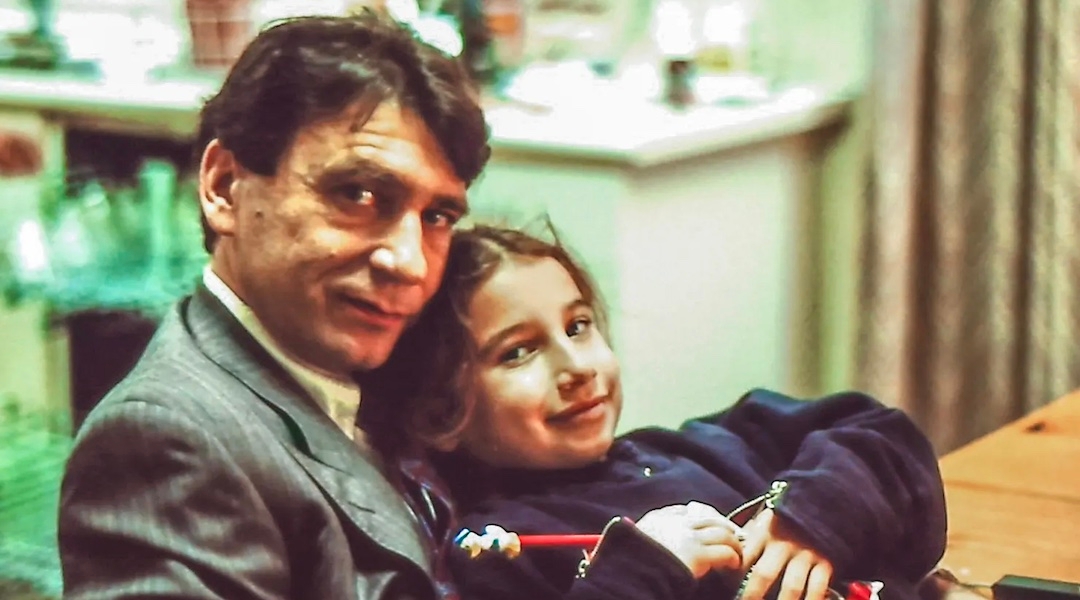
Jacob Goldstein, an Australian physician and child of Holocaust survivors, and his daughter Elissa. (Courtesy Elissa Goldstein via The Age)
Before he became a revered cardiothoracic surgeon in Melbourne, Jacob Goldstein, born to two Polish Holocaust survivors in a displaced persons camp in Germany in 1947, came to Australia in 1950 as a stateless child refugee. In an essay in The Age, his daughter Elissa recalls that, while a modest man himself, he regularly scanned the list of recipients of the Order of Australia — an honor recognizing distinguished citizens — simply because he was fascinated by “the stories of the honourees who conjured lives of greatness in Australia seemingly out of nothing, many of them refugees and immigrants like him.”
Before he died on Oct. 10, 2023, at age 76, his family nominated him for the prize — which was awarded posthumously earlier this month. Writes Elissa:
Now, inevitably, I find myself perusing the list of honouree names as Dad once did. He would have been a little embarrassed by all the fuss, but I can kvell. The [Order] is a fitting tribute from the place that made him — a place that is in turn enriched by the people it opens its doors to, child refugees and skilled immigrants alike. You never know who’s going to walk off a boat or a plane and hold your heart in their hand one day.
I just wish I could pick up the phone and share the news the way he used to: “Guess who got a gong?”
JTA has documented Jewish history in real-time for over a century. Keep our journalism strong by joining us in supporting independent, award-winning reporting.
